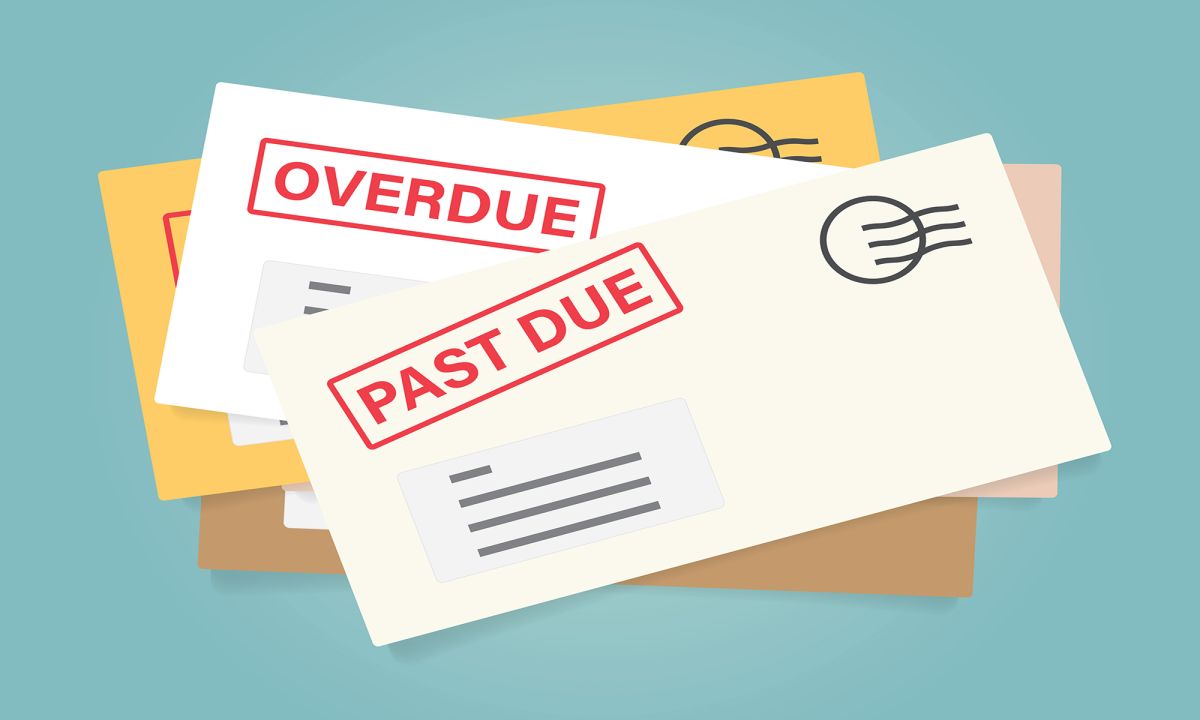Business Practices, eNews
Proactive Strategies to Tackle Late Payments
The causes of late payments are diverse and can negatively impact stakeholders across various industries—everything from supply chain delays, cash flow issues and invoicing errors. Credit managers must use proactive strategies to encourage timely payments from habitual and sporadic late payers.

The causes of late payments are diverse and can negatively impact stakeholders across various industries—everything from supply chain delays, cash flow issues and invoicing errors. Credit managers must use proactive strategies to encourage timely payments from habitual and sporadic late payers.
Get to the Root Cause
Having an open conversation with your customer will not only give you better insight into their financial problems but also allow you both to work together to find a solution. It also helps you execute a plan to get them to pay you on time. Tina Hatfield, CBA, credit manager at Mountainland Supply (Orem, UT) makes sure that she has an open conversation inquiring of her customer’s circumstances and business structure in hopes of understanding internal hurdles they are navigating each month to get payments disbursed. “Most times, we identify simple ways we can assist the customer so that they can reconcile invoices and statements faster, or offer suggestions based on what we see and hear from other customers, while maintaining discretion,” she said. “Other times, there are no clear solutions, but just the conversation may be enough for the customer to be mindful of their continued delinquency and resulting consequences.”
Enforce Lien Rights
As a credit manager in the construction industry, you can enforce your lien rights, a claim made against a property by a contractor or subcontractor who has not been paid for work done on that property. Construction liens are designed to protect professionals from the risk of not being paid for services rendered. “If there’s a bond that we can leverage, we’re going to execute that and we’re going to impair the bond and put a claim in so that we can get paid the principal amount on the claim,” said Danny Mackes, collections manager at NACM Business Credit Services, W-WA (Burien, WA).
Marcela Rolon, CBA, credit manager at RCP Block & Brick, Inc. (Lemon Grove, CA) has a system that sends out automatic payment reminder by email. In addition, she sends a personal email to her habitual late payers as an individual reminder to remind them the due date is near. “The day before the account is late, I send another email to remind them that we have the right to send out an intent to lien on any job that is prelimed,” Rolon said. “I also remind them that we’re going to contact the owner and the general contractor if the payment isn’t received.”
Make a Payment Plan
A well-designed payment plan ensures that payments are timely, reducing the risk of late fees or ongoing delinquency. Payment plans increase the chances of your recovering unpaid invoices, which means that you will get more of the payment owed to your company. “Depending on the timing, receiving payment from a week to a few weeks late is not a problem,” said Greg Foster, CBA, credit manager at Gexpro (Smyrna, GA). “If it is more than 30 days past-due, we request that they make a partial payment toward that due date or make a payment plan that is feasible for them within that timeframe. This way, we can maintain goodwill and positive relationships.”
Provide Multiple Forms of Payment
By accepting multiple forms of payment, you give customers the freedom to choose while minimizing the occurrence of late payments. This flexibility is especially helpful when working with international customers who worry about time zone differences, holidays and foreign exchange risk when making transactions. Kristine Holthaus, CBF, credit manager at SPS Companies, Inc. (Minneapolis, MN) goes a step further and allows customers to pay via credit cards over the phone. “We even offer an electronic check service so they can scan and email us the check copy and we can process it electronically,” she said. “They do not need to mail the check, and this helps save the ‘float’ time lost to the postal service. It is also more secure with all the mail fraud we are seeing in the marketplace.”
Credit Scoring
Monitoring and maintaining a good credit score is pivotal for ensuring the long-term stability and growth of a business. By letting customers know that their payment behavior will impact their credit score, they’re more likely to pay. “We let our customers know that we report our AR and payment information to Experian so if they want a good credit score, it makes sense to pay us timely,” Holthaus said. “It is very valuable to use us as a trade reference and in my department, we promptly reply to trade reference requests from our customers. This is very effective with recently formed companies that are trying to establish themselves in the industry.” Many NACM members rely on NACM National Trade Credit Report reference checking feature as a way to save staff resources.
Obtain Quality Customer Information
You can avoid late payments or payers during the customer onboarding process. There, you can look to see if barriers exist to payment in credit applications or contracts that can be easily fixed. “When you open the account, send a welcome package that outlines how to obtain invoices or other documentation necessary to pay, dispute policy and defines your payment terms with no ambiguity about what is considered late and what the consequences are for being late,” said Harry McLaughlin, CICP, process improvement manager at Continental Tire the Americas, LLC (Fort Mill, SC). “Have someone follow up on their first payments before they come due. Make certain that they receive their invoices, confirm the due dates and answer any questions. Follow up quickly on any late payments even if it is just a couple days.”
By asking for and evaluating the financials of the customer, you’ll have a better understanding of their financial state and if they have the capacity to pay you on time. “We ask for financials depending on the limit because that is a pretty good indicator of how they pay their bills,” said Jacqueline Cuggino, director of credit and risk management at Distribution Management, Inc. (Saint Charles, MO). “We also use credit reports depending on the limits being requested for payment history. We check with their bank to validate banking history and balances. For new accounts, if they go over their limit or are at 30 days and they haven’t paid their net-30 invoices, they immediately go on hold until we are current. We do not carry insurance on our customers so if there is a risk of them paying late, we will suggest they partner with one of our flooring companies and do business directly with them.”
When onboarding any customer, make sure they have a clear understanding of their terms. “All applicants, regardless of the approval level, receive a welcome letter,” Hatfield said. “This letter welcomes them as a new credit customer and includes details such as credit terms, who their credit manager is, who their salesman is, payment remit address and an invite to enroll online for access to their account.”
Maintain Customer Relationship
Building and maintaining strong customer relationships will not only ensure timely payments, but it will help you find solutions to payment delinquency. “If my customers aren’t paying me in a timely fashion, then I can’t do anything other than impress upon them that, as trade partners, we understand and will work with them as best we can,” said Foster. “But their payment history impacts our terms moving forward so we both must honor the commitments to our contract. If it’s a large customer doing large jobs, such as those in construction, there’s the ladder of supply to think about. Oftentimes, the owner and GC of a project hold onto money if they possibly can.”
Nelida Lervaag, Central Texas credit manager at Robert Madden Industries (Georgetown, TX) says communication is important to establish a strong customer relationship. “As a credit professional, you must establish a relationship with your customer and speak to them on a monthly basis,” she said. “If you keep the communication line open, you won’t be surprised when they’re in a difficult financial situation that has made them late for payments. By doing so, you’re building that trust to where they’re willing to call you about it.”





